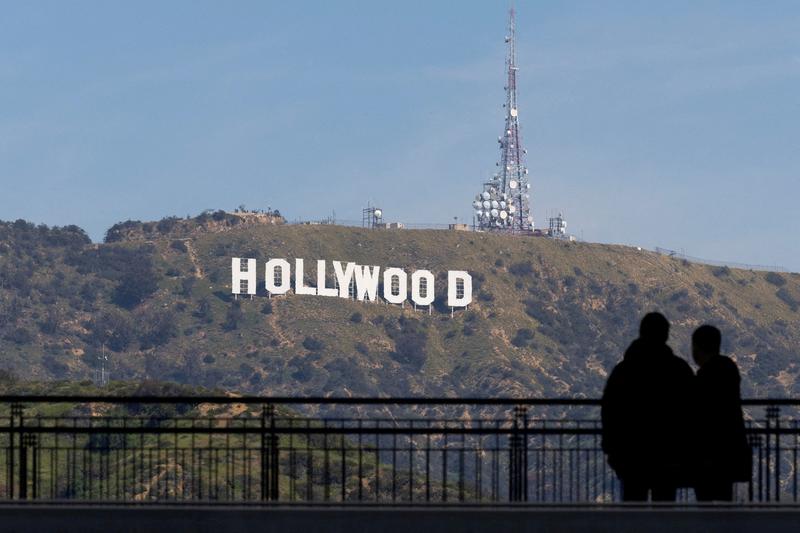LOS ANGELES (Reuters) – Hollywood television and movie writers wrap up a critical vote this week as they push media companies to raise their pay or face a strike that would disrupt an industry recovering from the pandemic and under pressure to make streaming more profitable.
Negotiators for the Writers Guild of America (WGA) have asked the roughly 11,500 members to give them the power to call a strike after May 1 if contract talks break down. Voting closes on Monday and the tally is expected to be released shortly after.
The strike authorization vote is meant to turn up the heat on companies such as Netflix Inc and Walt Disney Co and convince them to raise the pay for writers, who say their compensation has suffered because of the streaming revolution, which resulted in shorter TV seasons and smaller residual payments.
“We feel like we’ve been undervalued for years,” said John August, a screenwriter who sits on the Guild negotiating committee.
A prolonged strike could be costly.
The last WGA strike, in 2007 and 2008, lasted 100 days. TV networks broadcast re-runs and more reality shows, while the cost to the California economy was estimated at $2.1 billion, according to the Milken Institute. Most TV and film writers live in Los Angeles or New York.
Studios do not want another disruption, particularly after COVID-19 shut down production worldwide for months.
Film and television work has rebounded, but movie-going remains below pre-pandemic levels, despite blockbusters such as “Avatar: The Way of Water.” The broadcast television business also is struggling, as viewers and ad dollars migrate to streaming.
August said writers believe the timing is right to push for higher pay as media companies work to find the right balance between spending and profits from streaming.
“This is the moment to really have a conversation about how we’re making television right now and making sure writers are paid properly,” August said.
PAY, WRITING ROOMS AND AI
The WGA is seeking increases in minimum salaries plus changes to practices that reduce pay, such as smaller “mini-rooms” of writers hired before production.
Half of TV series writers now work at minimum salary levels, compared to one-third in the 2013-2014 season, according to Guild statistics. Median pay for scribes at the higher writer/producer level has fallen 4% over the last decade.
Sources close to studios counter that budgets are tight at a time when Wall Street wants to see profits from multi-billion dollar streaming investments that are draining balance sheets.
Disney, for example, is laying off 7,000 people as it tries to cut $5.5 billion in costs. Warner Bros Discovery, created by a recent merger, recently announced it would re-vamp its streaming efforts as it chases profitability.
Writers also have greater opportunities than ever to find work, with a record 599 scripted shows released in 2022. Residuals paid to TV writers hit an unprecedented $493.6 million in 2021.
The Alliance of Motion Picture and Television Producers (AMPTP), which represents Comcast Corp, Disney, Warner Bros, Netflix and others, said in a statement that it was committed to “reaching a mutually beneficial deal.”
“We’re optimistic that we can get through this,” Warner Bros Discovery Chief Executive David Zaslav said at a recent press conference, but added, “We’re assuming the worst from a business perspective. We’ve got ourselves ready. We have a lot of content that’s been produced.”
Another issue is the emergence of artificial intelligence. The WGA wants safeguards to prevent studios from using AI to generate new scripts from writers’ previous work. Writers also want to ensure they are not asked to rewrite draft scripts created by AI.
A strike authorization does not mean a work stoppage will happen. In 2017, WGA members authorized a strike but reached a deal hours before writers headed to picket lines.
If a strike is called, audiences would first see the impact on late-night talk shows, which use teams of writers to pen topical jokes. Daytime soap operas would be next. Many comedies and dramas are filmed months in advance, giving them a longer lead time before fresh episodes would run out.
Movies are written at least two years in advance so near-term releases in cinemas would not be affected.
Reporting by Lisa Richwine; Additional reporting by Dawn Chmielewski; Editing by Mary Milliken and Diane Craft


